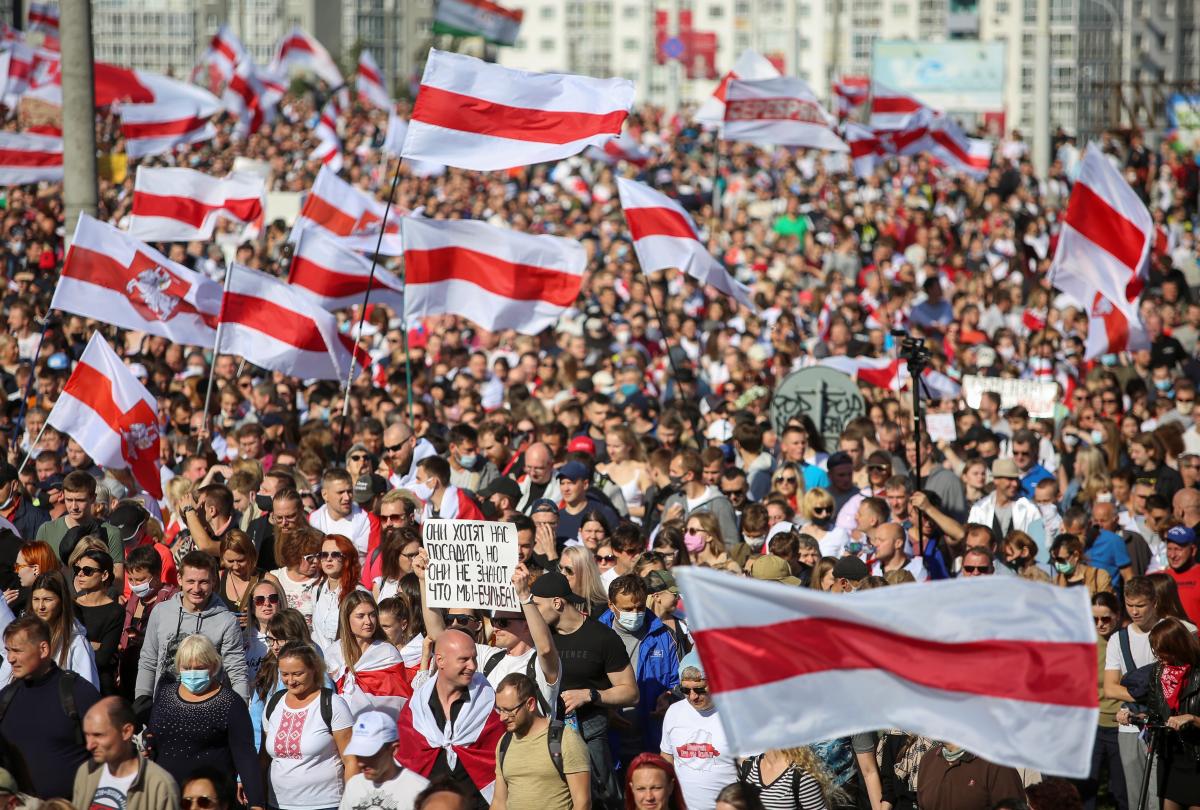
The Verkhovna Rada, Ukraine's parliament, considers it unacceptable to involve Russia's troops and apply the Collective Security Treaty Organization (CSTO) agreement in resolving the crisis in Belarus.
The relevant statement was approved by Resolution No. 3053, backed by 228 MPs, an UNIAN correspondent reports.
"We shall consider such a step a direct threat to the European security and that of Ukraine," the statement says.
The Verkhovna Rada believes the presidential elections in Belarus were neither free nor fair, and held amid the lack of competition between candidates, free media, and authoritative observers from international organizations such as the OSCE and the Council of Europe.
Read alsoLukashenko loses legitimacy in democratic society – Polish FMIt is also noted the elections "were held with significant violations, multiple refusals to register candidates, and non-transparent vote count."
The MPs consider it unacceptable to intimidate opponents, imprison them, and create obstacles to independent national observers at polling stations.
"All this gives grounds to believe that the officially announced results of the presidential elections in Belarus do not reflect the real expression of the will of Belarusian citizens," reads the statement.
The Ukrainian parliament condemns the use of "excessive force and brutality" by Belarusian law enforcement.
"We join the European Union's assessment of the undemocratic nature of presidential elections in Belarus and support the imposition of sanctions against those responsible for falsifying election results and using violence against protesters," reads the report.
The Verkhovna Rada demands the release of all detainees and hopes the official authorities of Belarus will not allow further escalation of persecution, both of their opponents, for political reasons, and citizens of Belarus who took to the streets of cities to expressed their disagreement with the government's actions.
"We strongly condemn and consider unacceptable the illegal detention of Ukrainian citizens. We will protect their rights and interests by all legal means," the statement reads.
Ukraine respects the sovereignty of Belarus and "resolutely rejects accusations voiced by the Belarusian side of involvement in destabilization of Belarus."
The Ukrainian parliament also calls on the Belarusian authorities to establish an equal dialogue with the Belarusian society to find a peaceful way out of the crisis.
"One of the options could be new, free and democratic elections with the attendance of independent international observers from leading European institutions," the statement said.
Belarus protests: background
On August 9, presidential elections were held in Belarus. The country's Central Election Commission announced the final election results. In particular, 80.1% of voters supported incumbent President Alexander Lukashenko, 10.1% voted for Svetlana Tikhanovskaya, 1.67% for Anna Kanopatskaya, 1.2% for Andrey Dmitriev, and 1.14% for Sergei Cherechnya. Some 4.59% voted against all candidates.
Thousands took to the streets to protest what many believe was a rigged vote count. Riot police violently cracked down on protesters.
Belarus' Ministry of Internal Affairs said about 7,000 protesters had been detained in different cities since August 9. On the evening of August 13, the authorities started to release detainees.
On August 14, the European Union announced it did not recognize the outcome of the presidential elections in Belarus.
The March of Freedom, the largest protest in the history of Belarus, took place on August 16 in Minsk. Hundreds of thousands of people joined in.
On August 20, the Prosecutor General's Office opened a criminal probe into the attempt by the opposition to "seize power."
Lukashenko has repeatedly claimed "foreign interference" in the election and the external efforts to foment protests. He spoke with Russian President Vladimir Putin who had promised him comprehensive assistance upon request.
Belarusian Defense Minister Viktor Khrenin has warned of the possible use of army to disperse protesters rallying under the flags he claims were once used by Nazi troops.
On Sunday, September 6, the March of Unity was held in the cities of Belarus. According to various sources, a total of nearly 100,000 protesters took part in the rally.
The European Union has not recognized election outcome in Belarus. EU leaders reached an agreement to impose sanctions on Belarusian officials in response to vote rigging and the use of violence against protesters.
On September 13, the law enforcers again detained protesters amid mass rallies across Belarus. The police used force even against women.

